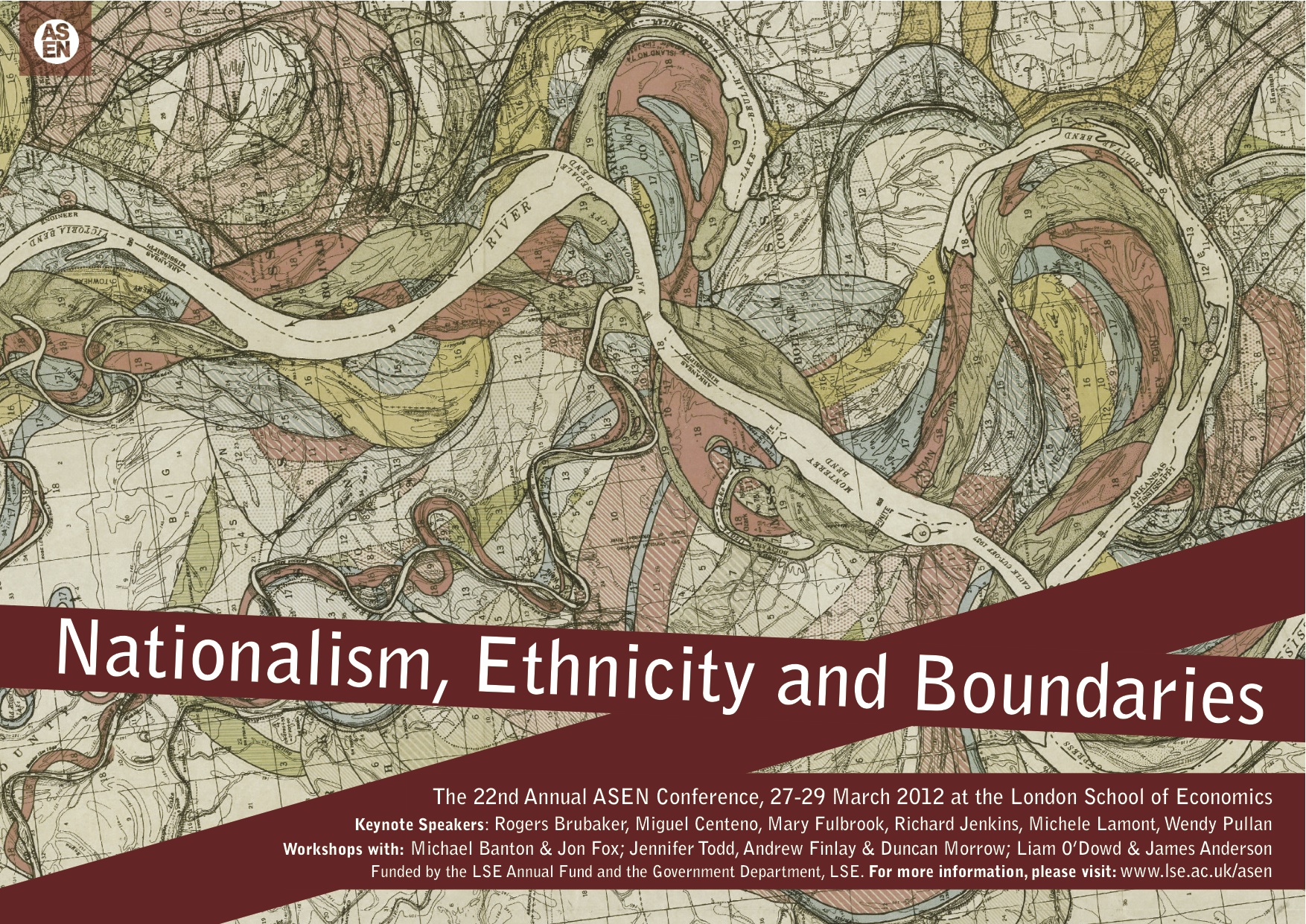Nationalism, Ethnicity and Boundaries: Conceptualising and understanding identity through boundary approaches
Edited by Jennifer Jackson and Lina Molokotos-Liederman – Routledge – 2014 – 252 pages
Series: Routledge Studies in Nationalism and Ethnicity (Based on the 2012 ASEN Conference)
Nationalism and ethnicity have become, across time and space, a force in the construction of boundaries. This book analyses geographical and physical borders and symbolic, political and socio-economic boundaries, and how they impact nationalism and ethnic identity.
Geographic and other tangible borders are critical components in the making and unmaking of boundaries. However, symbolic or intangible boundaries along national, ethnic, political or socio-economic criteria are equally significant. This volume connects some important contributions in the relevant literature from across the disciplines by bringing together considerations of territorial and symbolic boundaries and borders with boundary-infused conceptions of ethnicity and nationalism. It also shifts the focus towards a better understanding of the various ways that members of national and ethnic categories, as well as non-members, understand which boundaries are relevant to social categories.
This volume contributes in particular a greater systematization when it comes to understanding boundary processes by incorporating a strong theoretical framework with case studies that shed light on these processes. This comparative approach demonstrates how and under what circumstances boundaries assume particular characteristics and in what cases they become more or less permeable, salient, visible and/or durable. It also sheds light on how social actors construct groups and communities through the use of boundaries and how individuals understand their obligations towards the groups and categories they find themselves in. Finally, the book helps establish more concretely how individuals think of themselves in comparison to others and how they perform their differences and similarities.
Organised into three sections on theory, national case studies and comparative perspectives, the book includes contributions from experts in the field presenting detailed national and transnational case studies, including the UK (England and Scotland), Israel, the post-Soviet States, Ireland, and Canada, as well as examples from several other countries.
The aim in editing this volume has been to to provide a critical evaluation of the use of borders, boundaries and boundary-making in the study of nationalism and ethnicity and a point of reference for a methodological and conceptual reflection on the complex and multifaceted interactions between nationalism, ethnicity, symbolic boundaries and physical borders. It is hoped that both the theoretical work and case studies presented in this volume will prompt further interest and inspire further research in this field.
Table of Contents
1. Introduction Jennifer Jackson
Part I: Theoretical framework and methodological considerations
2. Boundaries and borders Richard Jenkins
3. Aspects of boundary research from the perspective of longue durée Jean Terrier
4. Modernity, globalization and nationalism: the age of frenzied boundary-building Daniele Conversi
5. Ethnic boundaries: A critical rationalist perspective Michael Banton
Part II: Case Studies
6. Boundaries and Belonging: dominant ethnicity and the place of the nation in a globalizing world Michael Skey
7. A’ the Bairns o’ Adam? The Ethnic Boundaries of Scottish National Identity Michael Rosie
8. Ethnicity and boundaries in Jewish nationalism Yitzhak Conforti
Part III: Comparative Perspectives
9. Nationalizing states revisited: projects and processes of nationalization in post-Soviet states Rogers Brubaker
10. Negotiating national identity in Northern Ireland and Quebec: youth perspectivesJennifer Jackson
11. The migration of frontiers. ethnonational conflicts and contested cities Wendy Pullan
Jennifer Jackson’s dissertation, for which she was recently awarded her doctorate from University College Dublin, compares the origins and evolution of ethnic and national boundaries in Northern Ireland and Quebec and explores the ways in which young people negotiate these boundaries.
Lina Molokotos-Liederman is a sociologist of religion, a visiting fellow at the Uppsala University Religion and Society Research Centre (CRS) and a postdoc associate of the Groupe Sociétés, Religions et Laïcité (GSRL/CNRS) in Paris.
The book can be ordered here
Check out SEN Special Issues based on past ASEN conferences:
Forging the Nation: Performance and Ritual in the Re(production) of Nation


